From July 15th to 24th, 2018, 20 researchers from Wuhan University China Institute of boundary and Ocean Studies(CIBOS) went to Gansu and Xinjiang to investigate the land boundary between China and Mongolia. The investigation was conducted in the form of departmental discussions and field surveys, with the specific research directions being border management, ecological protection, border security, border economy and trade, connectivity, and ethnic religions in border areas.

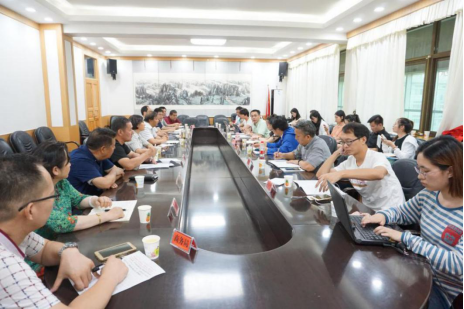
On July 16, 17 and 20, the research team held a discussion with the relevant departments of Gansu Foreign Affairs Office (hereinafter referred to as the Foreign Affairs Office), Jiuquan City and Hami City. Relevant departments of the two provinces attached great importance to this research activity. Leaders from the foreign affairs department, border defense department, transportation department, statistical bureau, port office, development and reform commission, environmental protection bureau, commercial bureau, and religious bureau attended the meeting. The content of the discussion mainly included the management status and problems of the Gansu and Xinjiang sections of the Sino-Mongolian border, the implementation of the “Belt and Road” in the two provinces, the reopening of the Mazong Mountain Port in Gansu, the management experience of the LaoYemiao Port in Xinjiang, and the future work deployment of the two provinces. During the meeting, the teachers and students of the research group had a full interaction with the relevant departments.
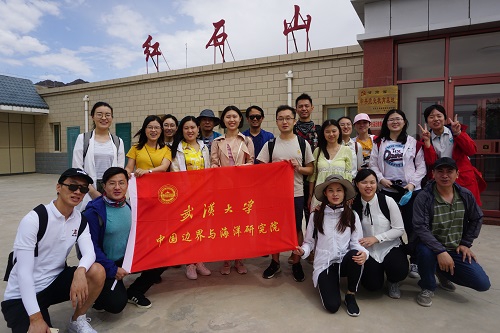
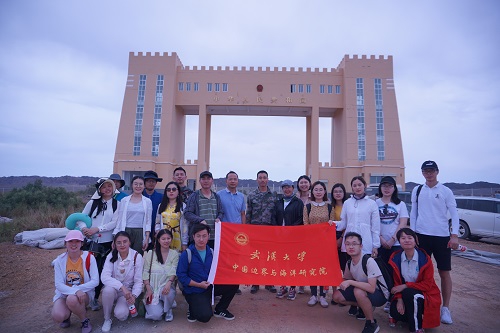
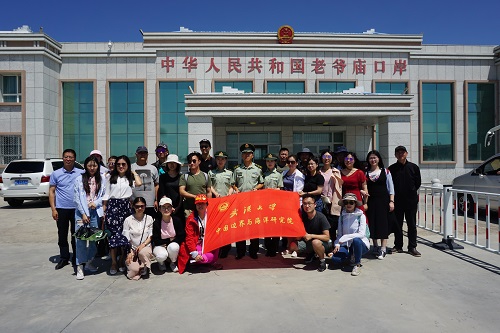
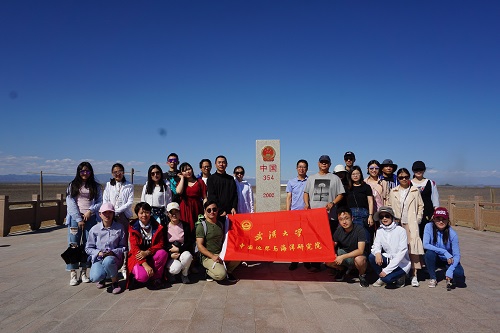
During the investigation, the research team visited the model of the topography and sand table of the Mazongshan Town and the Black Gobi Exhibition Hall, learned about the history and culture, national policies, economic and social development and political and strategic significance of the Mazongshan. They went to the Red West Road Army to enter the Xinjiang Memorial Park, pay tribute to the heroic sacrificial martyrs, and understand the history of the bloody battle of the West Road Army. They also bravely climbed the black Gobi and the old trenches and met plants such as red willow and scallions.
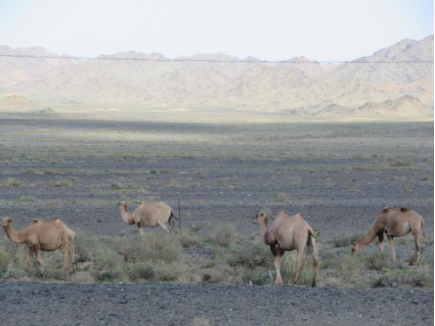

The investigation was very difficult because the sun was burning and the journey was long. The altitudes of Gansu and Xinjiang are relatively high, the climate is dry, and the temperature difference between wind and sand and day and night is relatively large. At the same time, the research team took bus, train, motor train and high-speed train for nearly 100 hours, but the research team was still full of energy and optimistic. They showed the positive energy of the students of Wuhan University. Understood that there is a lack of local water resources, teachers and students supervised each other in daily life, saved water; After eating, teachers and students also washed the tableware cleanly. Along the way, the teachers worked diligently and conscientiously; the students worked in coordination and actively completed the task.
After the survey, the research team learned about the overall situation of the land boundary between China and Mongolia in Gansu and Xinjiang, and found out the latest situation of border management between the two places, and mastered local border management, border management, ecological environmental protection, and cross-border The problems faced in economic cooperation, while learning from the experience of the two sides in the border affairs, prepared sufficient preparatory work for the compilation of the "China Land Border Situation Annual Report", so that the boundary problem in the future research to better serve the needs of national and local reality, as an important part of the country's decision-making reference. At the same time, the research team also brought back full and detailed research data, and established information communication channels with various departments on the borders of Gansu and Xinjiang. In addition, in discussions with relevant departments of Gansu Foreign Affairs Office, Jiuquan and Hami, leaders of various departments expressed the hope that more students will participate in border management affairs, which is also the training goal of Wuhan University China Institute of boundary and Ocean Studies.
China is the country with the largest number of land neighbors in the world. Dealing with border relations is of great significance to relations between countries. Wuhan University China Institute of boundary and Ocean Studies will continue to raise the level of research in the future, and strive to make greater contributions to maintaining China's border stability and jointly building a community with a shared future for mankind with its neighbors on land.
(Rewritten by Chen Panpan)
(Edited by Fu Shanshan)
